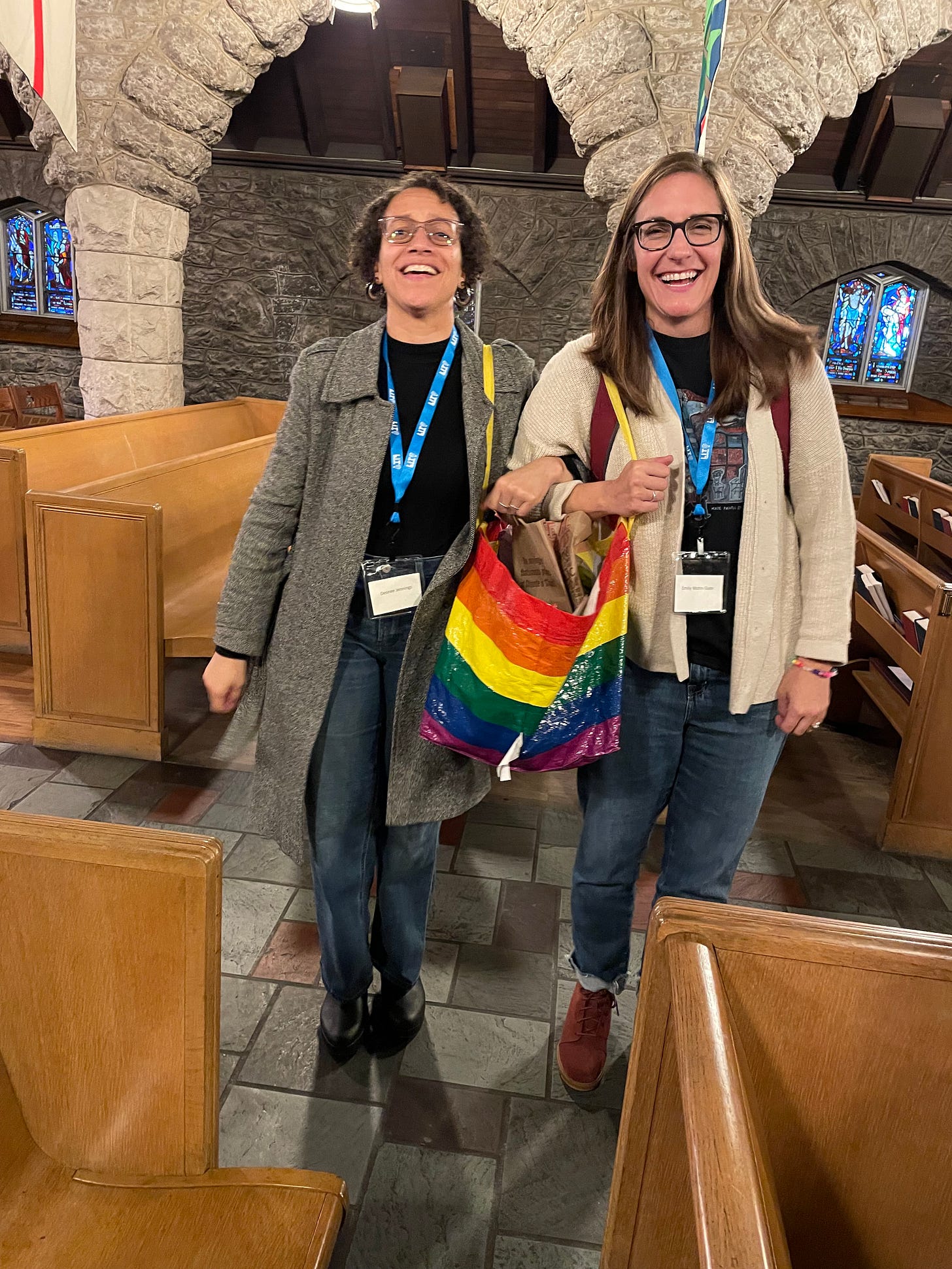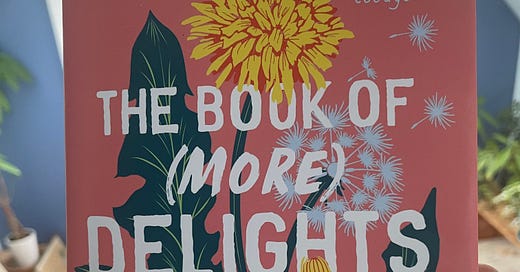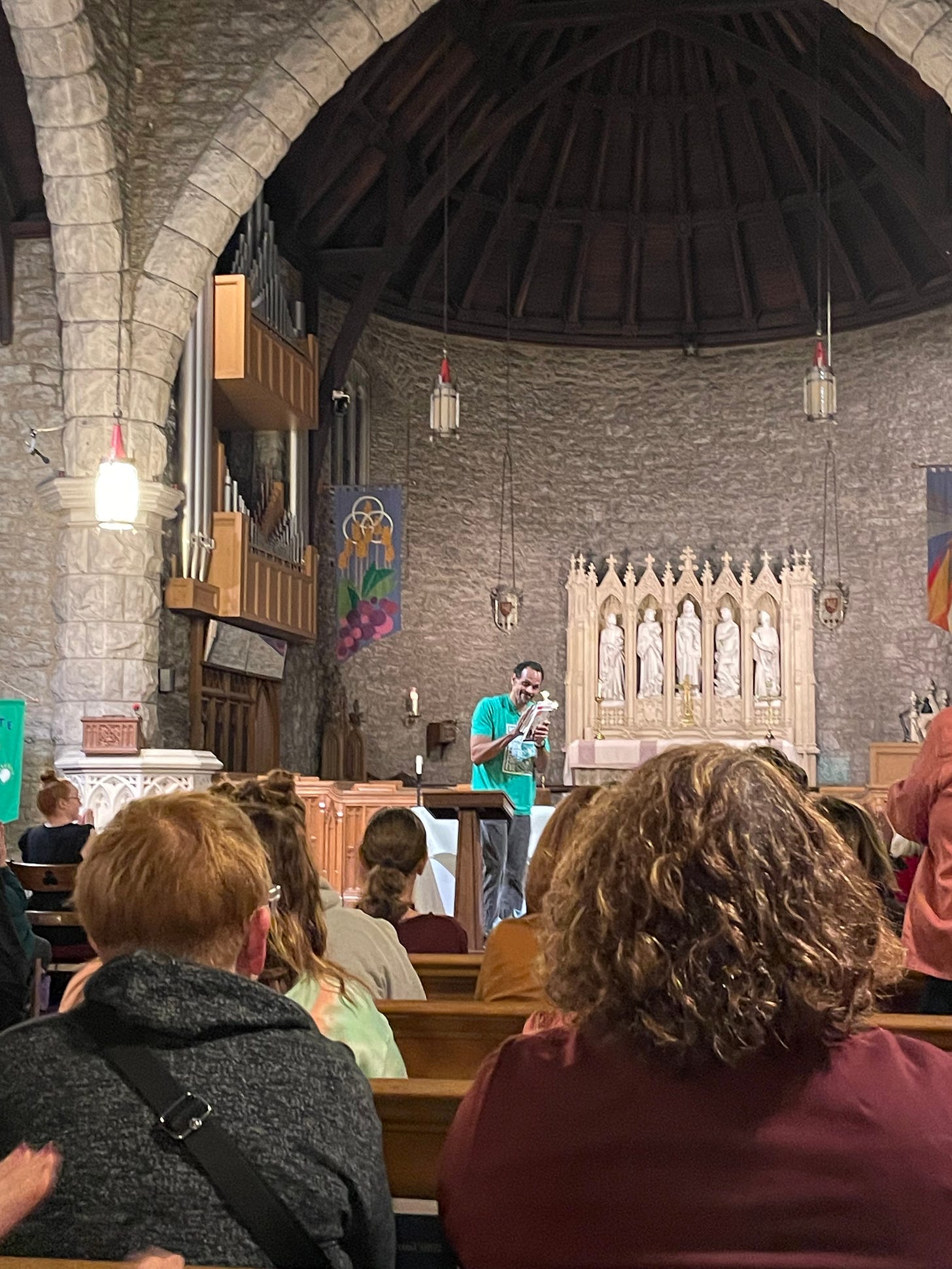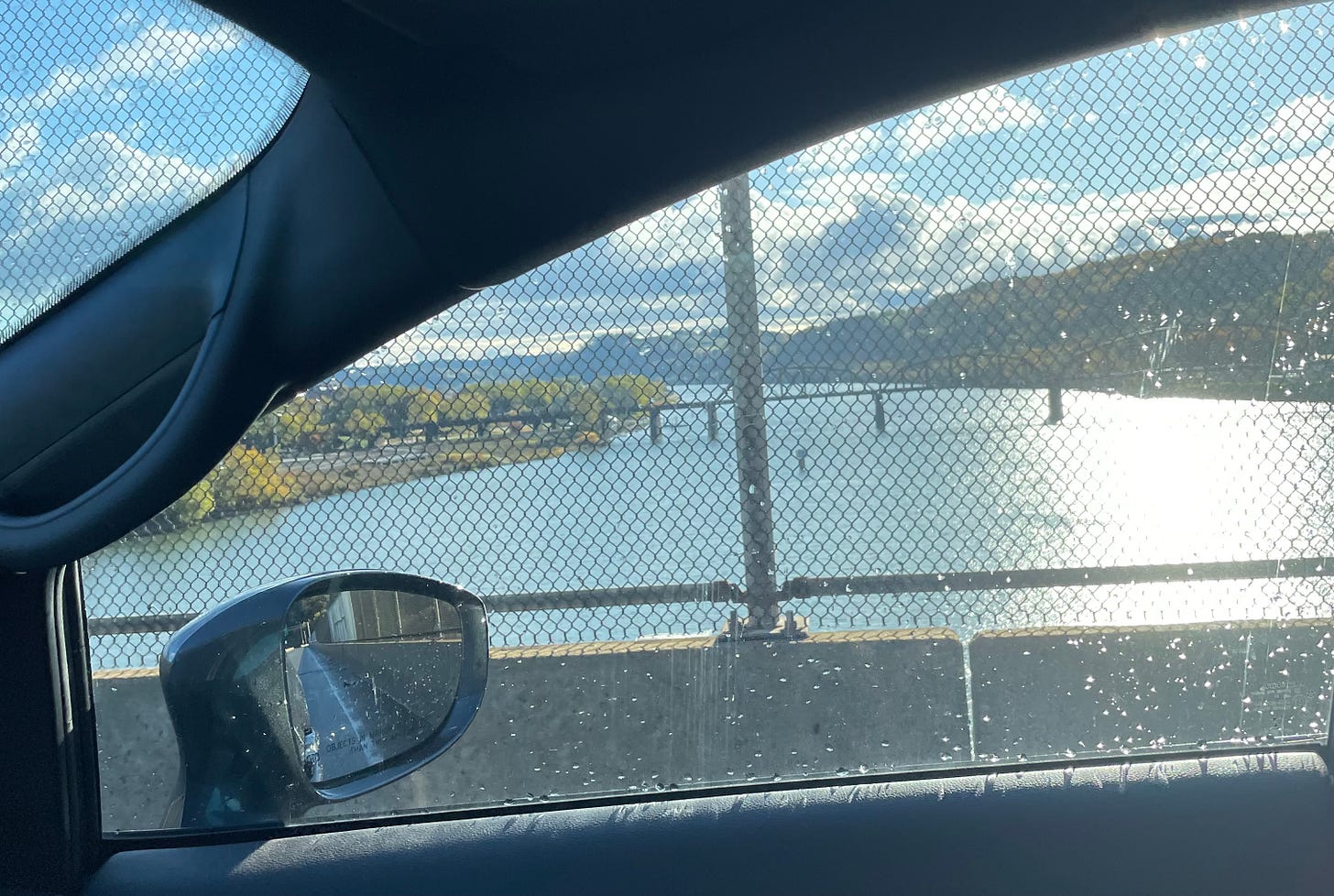Welcome, new subscribers! I’m so happy you’re here.
On Friday, I went to the Lit Youngstown Literary Festival in Youngstown, Ohio. I took a group of student editors from Plaid, the high school literary & art magazine I advise. It was such a shot of joy and delight in the midst of a relentless time of the semester and a dark time in the world. I saw a bunch of writers I love, hugged my friend, Carolyn Oliver, for the first time in 13 years(?!), and heard the always-inspiring poet and amazing human, Ross Gay, talk about teaching.
If you don’t know Ross Gay yet, you should. His website bio begins: “Ross Gay is interested in joy. / Ross Gay wants to understand joy. / Ross Gay is curious about joy. / Ross Gay studies joy. / Something like that.” He’s a poet, essayist, gardener, and professor who teaches at Indiana University and has written a number of award-winning books that will crack your heart open and leave you smiling, crying, laughing, sighing and wondering. Of all the beautiful things that happened at the festival, what stayed with me most is Gay’s conversation with Jennifer Sperry Steinorth in a session geared toward teachers titled, “What if we put our wildernesses together?”

Gay contrasted his teaching with the way that schools typically operate as “Evaluation Factories” that reduce students to interchangeable units. He talked about not wanting to take part in the purpose of the traditional workshop model for writing, in which there are two primary goals: 1) wanting our work to be liked, and 2) wanting it to be “fixable.” He talked about how in the traditional model, the purpose of school is mastery and dominion, which implies some end to our knowing, and also implies one person having power over others. In his mind, teaching and writing “constitute a relationship to oneself and others,” and relationships are never fixed or finished.
“I am more interested in a syntax of care,” he said.
Syntax is the order of words in a sentence. Gay reimagines it to refer, instead, to the order of people in our classrooms and in our world. A syntax of care values messiness, creativity, connection and love over achieving some polished, fixed product, which drives us behind walls and into our separate, navel-gazing selves.
Gay said he often starts a class by asking everyone, “What did you find beautiful on the way to class today? Or, simply, what do you find beautiful?” In this way, they spend time filling the room with everyone’s answers to that question. Which makes the classroom space “primarily about love.” As he says, the purpose of school should be “to get together and love each other and wonder about shit together.” YES.
Near the end of his talk he connected to Buddhist teachings, saying, “How can we be with each other in our groundlessness?” He connected that shared groundlessness to sorrow, which is bound up with joy, too, because “sorrow gives us a reason to reach for each other.”
Ross Gay’s writing offers us a way to change the terms of our daily lives, if we will hear it and really take it in. It’s an antidote, a medicine, for our separate selves scrolling through our sorrows and the sorrows of others. He rolls out a pathway to another way of being in the world—to hold each other in our sorrow, out of concern and care, instead of turning inward and away.
It makes me think of my friend, Hana, who lives in Boston and who is one of the few people I tell everything to. Since we can’t usually connect to talk in real time, we send Marco Polo video monologues back and forth to each other, telling stories and asking questions to be picked up and answered by the other in this continual volley back and forth.
Hana never tries to fix stuff for me—she just tells me “I’m holding this with you.” And, I feel the load lighten when I hear her say this. My shoulders physically feel lighter. Like she’s next to me holding up the other side of a heavy box, making it possible for me to keep going.
Like Desiree and me holding the snacks for our students. Like Ross Gay holding the pain of this moment in his reading on Friday, exuding a lightness of being that is not surface-y at all. It’s got depth and an edge, but a tender edge that makes you want to reach for others, pull them in.
Before we drove back down the dark highway toward Pittsburgh, we sat in wooden pews and listened to Ross Gay read to us in the massive sanctuary of St. John’s Episcopal Church. He wore a bright green t-shirt that read, Read Books Drink Coffee Fight Evil.
At one point, he made a forceful plea for peace, quoting Arundhati Roy: “Once weapons were manufactured to fight wars. Now wars are manufactured to sell weapons." And, as I listened to him read his poem “Sorrow Is Not My Name,” I felt viscerally the way each of us is trying to find a way forward, while holding the sorrow and suffering of people across oceans and continents and sleeping on the streets of our own neighborhoods. How many people aren’t able to be in touch with their family members in conflict areas and are left fearing and living a half-life unable to help hold their suffering, or even to hear them name what that suffering is. I heard the first few lines differently this time—“No matter the pull toward brink”—as a call for care and love in the face of what is so heavy it cannot be named fully. But it can be shared.
"Sorrow Is Not My Name" —after Gwendolyn Brooks No matter the pull toward brink. No matter the florid, deep sleep awaits. There is a time for everything. Look, just this morning a vulture nodded his red, grizzled head at me, and I looked at him, admiring the sickle of his beak. Then the wind kicked up, and, after arranging that good suit of feathers he up and took off. Just like that. And to boot, there are, on this planet alone, something like two million naturally occurring sweet things, some with names so generous as to kick the steel from my knees: agave, persimmon, stick ball, the purple okra I bought for two bucks at the market. Think of that. The long night, the skeleton in the mirror, the man behind me on the bus taking notes, yeah, yeah. But look; my niece is running through a field calling my name. My neighbor sings like an angel and at the end of my block is a basketball court. I remember. My color's green. I'm spring. —for Walter Aikens —Ross Gay, from Bringing the Shovel Down, University of Pittsburgh Press, 2011.
More Ross Gay
If you don’t have any of his books yet (which btw, why?), you can read some of his work online here.
His wonderful On Being interview on “Tending Joy and Practicing Delight”
I just started watching this reading and conversation with Patrick Rosal at a book event for Gay’s most recent book, The Book of More Delights, which came out last month. In this conversation, Patrick Rosal points out that in almost every essay, there’s a teacher that Gay encounters, people that teach him things on different levels. Which makes me think of Pema Chodron’s “This very moment is the perfect teacher, and, lucky for us, it’s with us wherever we are.”
Here’s Ada Limón reading and talking about the poem I shared above, “Sorrow is Not My Name” (4ish mins)
Here’s a short video (4:20) of Ross reading two of my favorite essayettes from The Book of Delights
Be Where You Are is a newsletter about how to use writing and mindfulness to be where you are. You’re always welcome to reply to this email, comment below, or find me on instagram (@mohnslate) or elsewhere. If you enjoyed this, I’d love it if you would subscribe, share this post, or send it to a friend. Please also let me know what you’re enjoying and what you’d love to see more of here! I’d love to hear from you.








I love what you shared about Ross Gay’s thoughts on reimagining the classroom/workshop dynamic! Even though it wears me out in its own way, I love that I can say that “to get together and love each other and wonder about shit together” is one of our homeschooling’s strengths. The kids and I have also been reading and discussing poems every school week Friday for years now, and one of those was “Sorrow is Not My Name.”
I have been thinking about ‘syntax of care’ also after his talk on Friday -- but from more of a language use perspective--not just asking questions, but what are the words we can choose to use that create, especially as a health care providers, a more loving and caring language when we speak to each other, especially those we care about & care for. Saturday was good as well-- there was a talk about everyday objects in writing & one about inheritances in writing & Ross did a workshop with us similar to what he described in the teaching talk, which actually turned out to be really fun & beautiful. Also, great to see you in person, finally. 💕